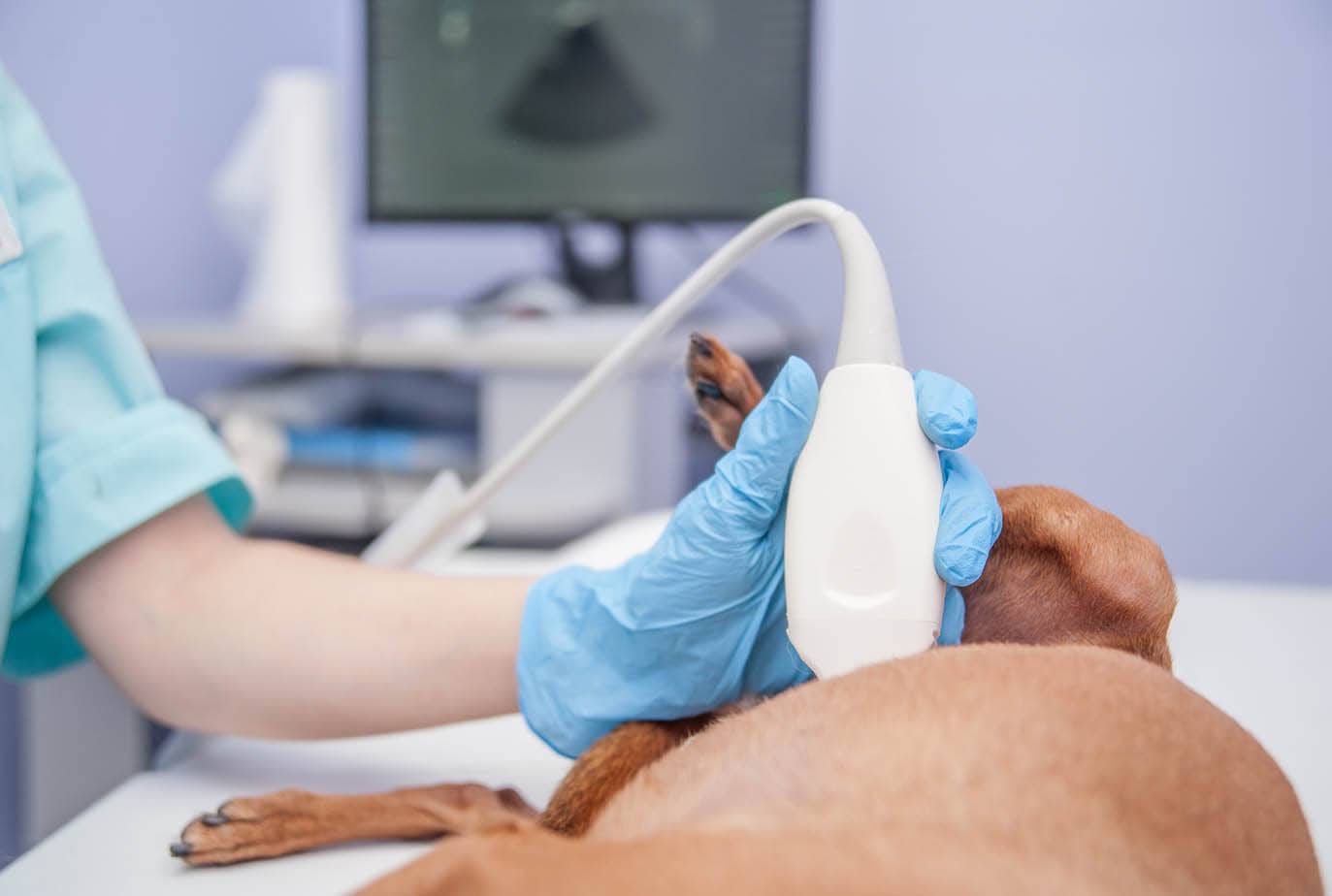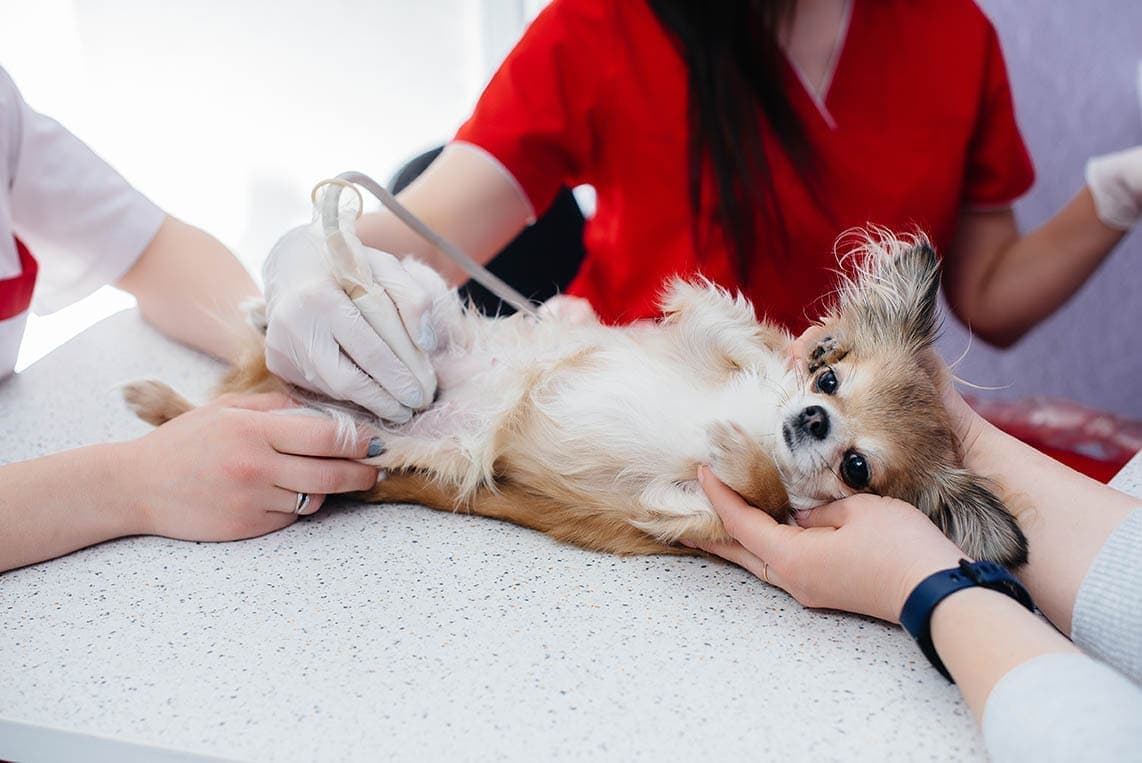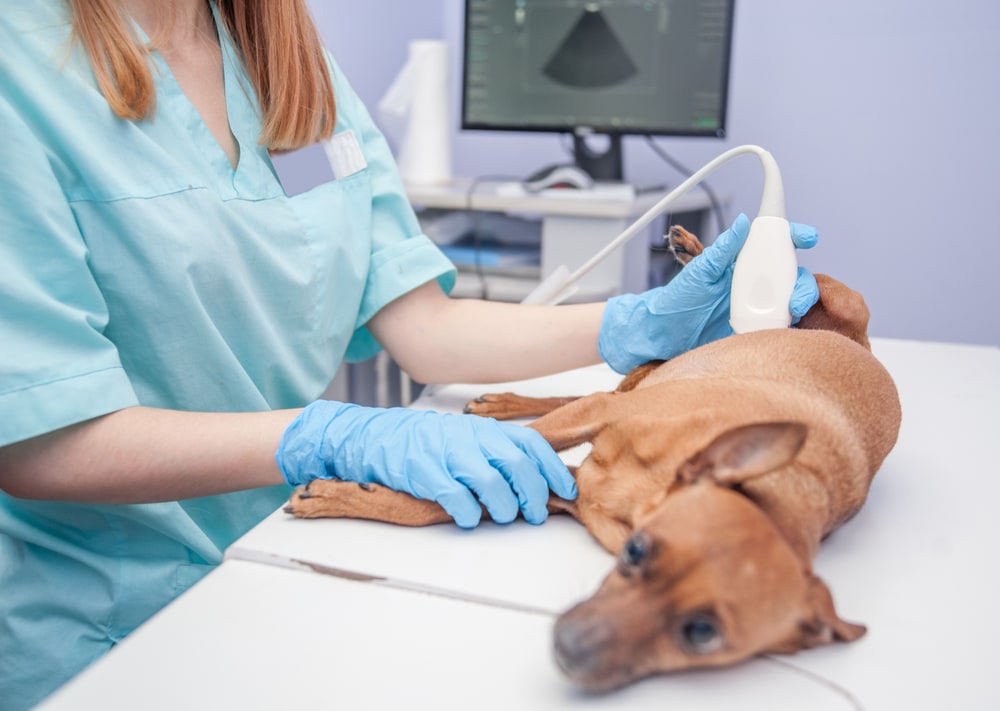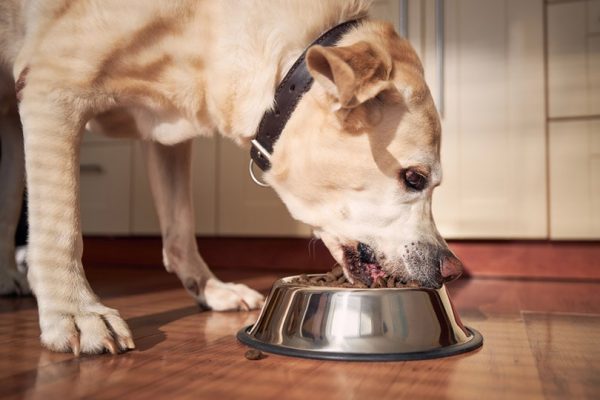In this article
Nobody can deny how much healthcare has advanced in the last few decades. The advancements have also brought significant changes in veterinary medicine. One benefit of human healthcare that has crossed over into vet medicine is ultrasounds. Ultrasounds are becoming far more accessible, and several specialists and primary care vets offer this form of imaging. Should you expect a high price tag, though? How much is an ultrasound for a dog? You should expect to spend $300–$600 for the ultrasound.

The Importance of Ultrasounds
Ultrasounds allow your vet to view the inside of your dog’s body without performing invasive surgery. Ultrasounds can be used for several purposes, from monitoring pregnancies to diagnosing cancers and organ defects. They can even be used to identify the source of internal bleeding with minimal risk to the dog.
How Much Does a Dog Ultrasound Cost?
How much your dog’s ultrasound costs will depend on the vet you see. Some primary care vets provide ultrasounds for dogs, and you can expect them to cost $200–$350. This is unlikely to include your visit fee or any additional tests.
If your dog sees a specialist for an ultrasound, you can pay $400–$500. Again, this is unlikely to include the visit fee and any additional testing the ultrasound results may lead to.

Additional Costs to Anticipate
It can be challenging to know exactly what additional costs you should anticipate if your dog needs an ultrasound because they will be determined by the diagnosis your dog receives.
When you take your dog in for an ultrasound, you can likely expect a visit fee, which can exceed $100 if your dog sees a specialist. Ultrasounds are often performed without sedation, but an uncooperative or aggressive dog may require sedation, which will tack on additional charges.
The best way to determine your additional costs is to talk to your vet before your visit and request an estimate. In most cases, the ideal estimate to receive shows the high and low end of expected costs. The more care and interventions your dog requires, the more charges you can expect.
If your budget is tight, make sure to clearly communicate to your vet clinic that you need to receive cost updates before additional tests and procedures are performed.

How Often Will My Dog Need an Ultrasound?
The good news is that many dogs only require an ultrasound once for diagnostic purposes and often don’t require repeat ultrasounds. However, pregnancies may require multiple ultrasounds to monitor the development of the pups, while certain cancers and organ defects may require routine ultrasounds to monitor for changes. Your vet can give you a good idea of if they expect your dog to need follow-up ultrasounds.
Does Pet Insurance Cover Ultrasounds?
Many pet insurance companies will cover ultrasounds. The primary exception to this is if your dog receives an ultrasound related to a pre-existing condition since most insurance companies will not pay for any care, tests, or medications related to conditions that were diagnosed before obtaining the policy.
If your dog’s ultrasound is not related to a pre-existing condition, then it’s highly likely that your pet insurance will cover the cost, leaving you with only your portion of the copay.

The Importance of Follow-Up Visits
You must maintain the follow-up visits that your vet recommends regarding the care of your dog after the ultrasound. This is especially important if your dog has been diagnosed with a chronic or life-threatening medical condition. Follow-up visits allow your vet to closely monitor everything from your dog’s appearance to their blood work, and they may even perform follow-up ultrasounds for monitoring purposes.
If the financial aspect of regular follow-up visits is a concern, talk to your vet about your monetary constraints. Tell them what you’re comfortable spending, and ask them about financial support options. Many vets accept forms of payment like Care Credit and ScratchPay to help you provide care to your dog. If you are an established client, your vet may also be able to work out a payment plan with you, but this should not be the expectation on your part.

Conclusion
Ultrasounds can be a lifesaving diagnostic tool for a dog experiencing a severe medical condition. They ensure the safety of pregnancies, and they can monitor changes in your dog’s body after surgery or treatment. Ultrasounds can become costly, so asking for an estimate beforehand can give you a good idea of your total bill.
Featured Image Credit: Ermolaev Alexander





















